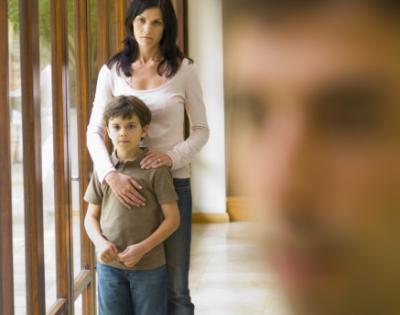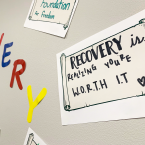
When a family member is in serious trouble, many families will go to any length to help the one they love. It’s like their battle cry, whether spoken or unspoken, is, “All for one, and one for all.” Unfortunately, with the diseases of alcoholism and drug addiction (substance use disorders), this desire to be helpful can become unhealthy for both the helper and the addict.
Family members are confused by the change occurring in the one they love. They don’t understand the increasing consequences, and are baffled by how distant, angry, manipulative, self-absorbed, or careless their loved one has become. So they try to solve the problem, fix the stressors, manage the consequences, and blame or excuse the using. Their actions are often based on unconscious motivations; “If I keep hovering and worrying, I get to keep my illusion of control,” writes Patricia Choate at Hazelden, referring to her experience in working with families. The natural instinct to swoop in and fix things becomes chronic and incessant, and eventually robs the family member of peace of mind.
Common behaviors occur in family and friends of a loved one caught in the cycle of addiction:
- Denial: Thinking, “She’s not that bad,” “He still works,” “It’s just a stage.”
- Enabling: Bailing out of jail, paying fines, abusing substances with them.
- Covering up: Keeping the increased use, consequences, and behaviors secret from everyone.
- Controlling: Pouring out the booze, limiting access to money, declining social invitations.
- Compensating: Taking over for the addicted individual’s responsibilities.
A common saying many treatment facilities share with family members is the “3 C’s”: “You didn’t Cause it, You can’t Control it, and You can’t Cure it.” This saying is an invitation to family and friends to begin the process of letting go, and learn healthy ways of being in a relationship with an addicted person.
First Step Recovery's Family Program
At First Step Recovery, we provide an educational/process group for individuals with a loved one in our treatment program. Adult family members and significant others are encouraged to attend as often as they are able during the months their loved one is in treatment.
Common topics covered in the family program are:
- Education on substance use disorders and the disease concept
- Identification of enabling and codependent behaviors
- Development of detachment skills
- Importance of a personal recovery plan
Family members are also encouraged to attend our weekly lecture series with their loved one who is in treatment. Topics include spirituality, anger management, self-care, medical aspects of addiction, codependency, guilt/shame, making amends, sleep hygiene, nutrition and recovery, smoking cessation, and personal sharing by Alumni about their experience.
For more information about First Step Recovery and its family program, call 701-451-4900 or contact us online.




